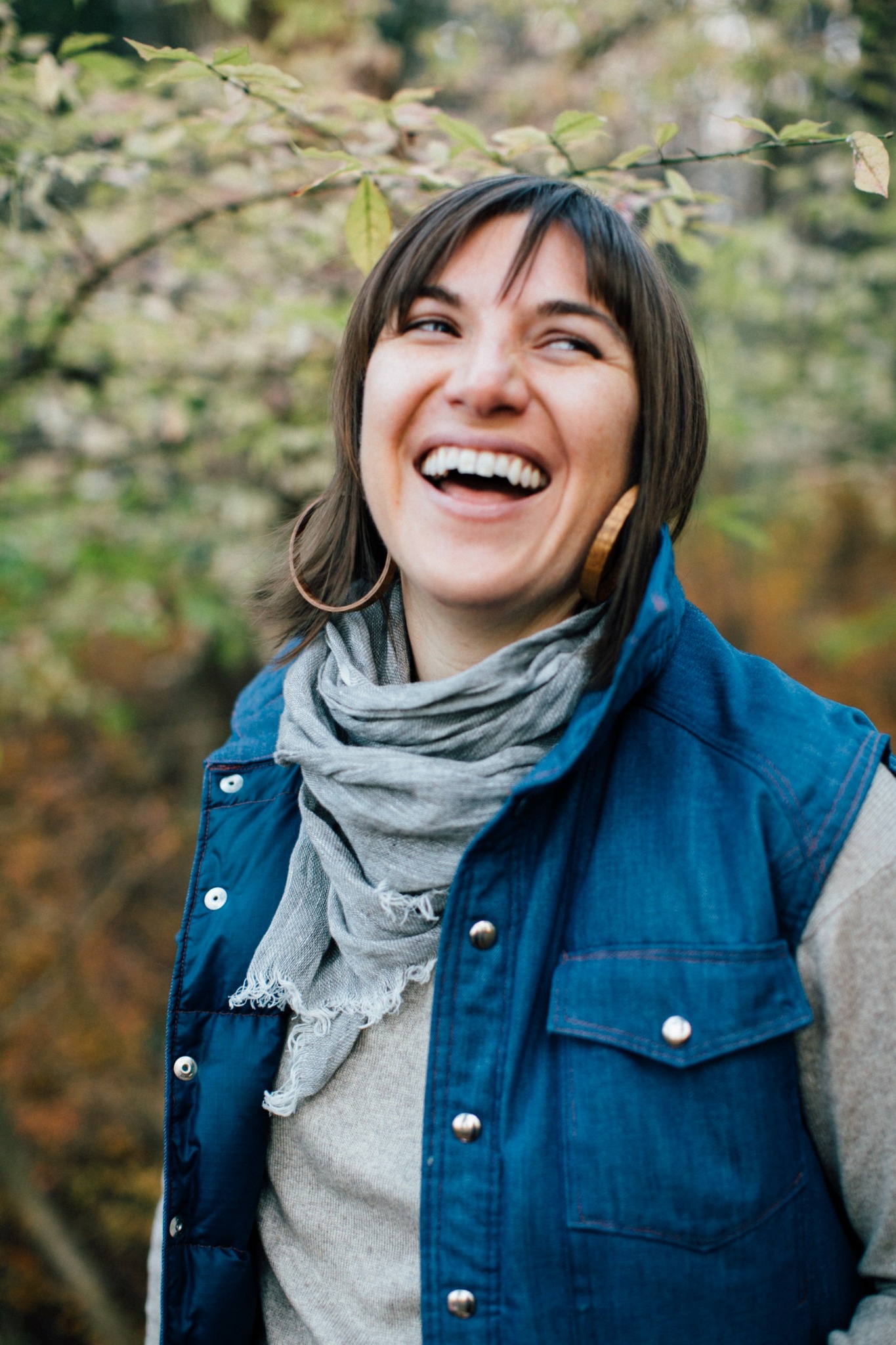We caught up with the brilliant and insightful India Clark a few weeks ago and have shared our conversation below.
Hi India, thanks for joining us today. Let’s jump to the end – what do you want to be remembered for?
When I’m gone, I hope people remember me as someone who was safe and supportive in times of uncertainty and stuckness. Also, as someone really fun to laugh and be ridiculous with. How I relate with clients—how I help them—involves being human and compassionate while bringing my best into a role I enjoy and am good at. I hope the people who land with me are left feeling seen and loved, more confident and creative, and like we’re all going to be ok down here, even when we’re not.
How I make people feel is much more important to me than how I am seen, but I do hope to be remembered with things I created—written things, handmade things, my beam of a son, and Wayfinder Deep Seeing™, a therapeutic process that uses mindful art observation to help us find our way in life. Self-awareness and aesthetic presence are gifts available to us at all times, even in our hurting lives, society and world, and invariably they lead us to more calm, creativity, and clarity.
So yes, I want to be a refuge, a giggle fest, a flashlight, a poem. My business has this personal, lyrical quality because it can, it’s what works, and it’s what I believe in. Self-expression in business is not a bad thing!
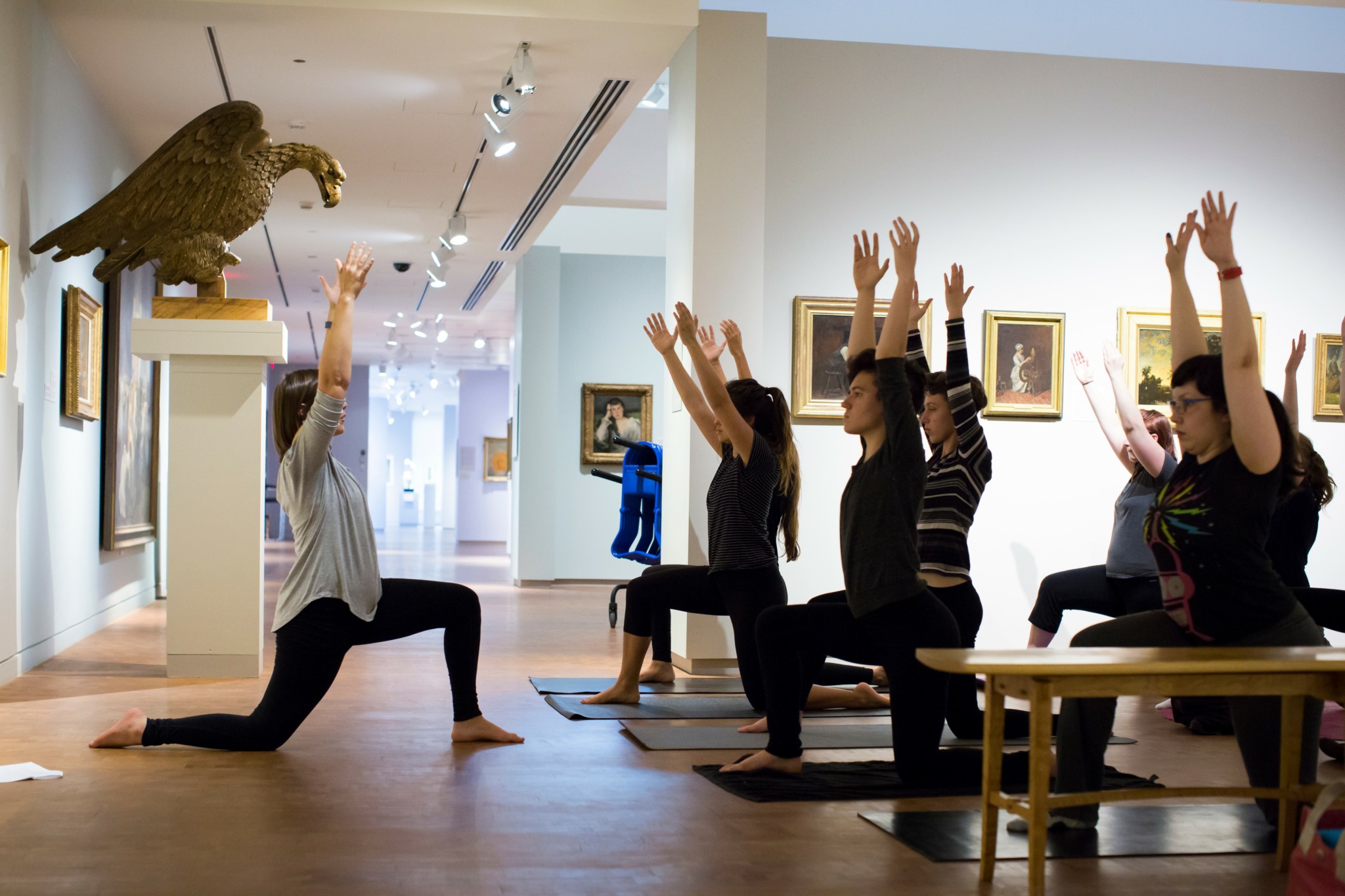
Awesome – so before we get into the rest of our questions, can you briefly introduce yourself to our readers.
I’m a mindfulness teacher and coach for creatives, the founder of the Wayfinder Institute, and creator of the Wayfinder Deep Seeing™ method. I use art and mindfulness to help creatives reflect on their circumstances, clarify intentions, and develop strategies that help them live more balanced, expressive and fulfilling lives. I also bring art-based mindfulness expertise to museums and institutions interested in supporting their audience’s wellbeing. And I’m a mother, poet, and woodworker living in Jamaica Plain, MA on the land of the Massachusett.
My eclectic journey is one of the things that gives me strength as a creative entrepreneur and coach. Each zig and zag on my path put me in touch with new skills and materials that became integral to the work I offer. My masters degree in museum education, for example, continues to inform my work as a mindfulness coach for creatives.
In my museum educator years, I was always more interested in the messages people received than the ones being sent by the art world. I noticed viewers had deeply personal experiences with artworks that jogged memory or brought insight. There was personal meaning and even therapeutic benefit available, but at the time this wasn’t the emphasis in the museum space.
I was always drawn to spirituality and wellness, so when the mixed blessing of a personal health crisis arose, I ended up leaving my museum job and diving into yoga and mindfulness. I did a lot of training and experimented in blending different techniques with art observation, and a new practice emerged. Wayfinder Deep Seeing™—a guided self-exploration process that uses art observation to help gain insight on personal questions, life decisions, and areas of challenge—became the backbone of my coaching and consulting practice and one of the things I’m most proud of. My team and I are currently in the process of developing a training program to enable therapists, coaches, and art educators to use it.
My work as a small business owner took years to develop and is always evolving. ADHD sometimes made me feel unsuited for both regular employment and self-employment! I resourced myself with coaching help to become successful, and having been a coaching client myself makes me a much better coach. Using my gifts to help others requires me to communicate clearly and confidently, and also to allow myself to be complex, interdisciplinary, and human. Surprisingly/unsurprisingly, compassion towards complexity is usually just what the people who become my clients are needing.
One last thing I’m really proud of is the community we’re building and the creative work that’s being generated in Sacred Studio, our mindfulness and creative-coworking membership for artists and creative entrepreneurs. It’s an online space of genuine warmth and inspiration with a facilitated format that supports creative flow and fosters accountability, so people get to focus on what really matters to them and bring it into being. It’s the best!
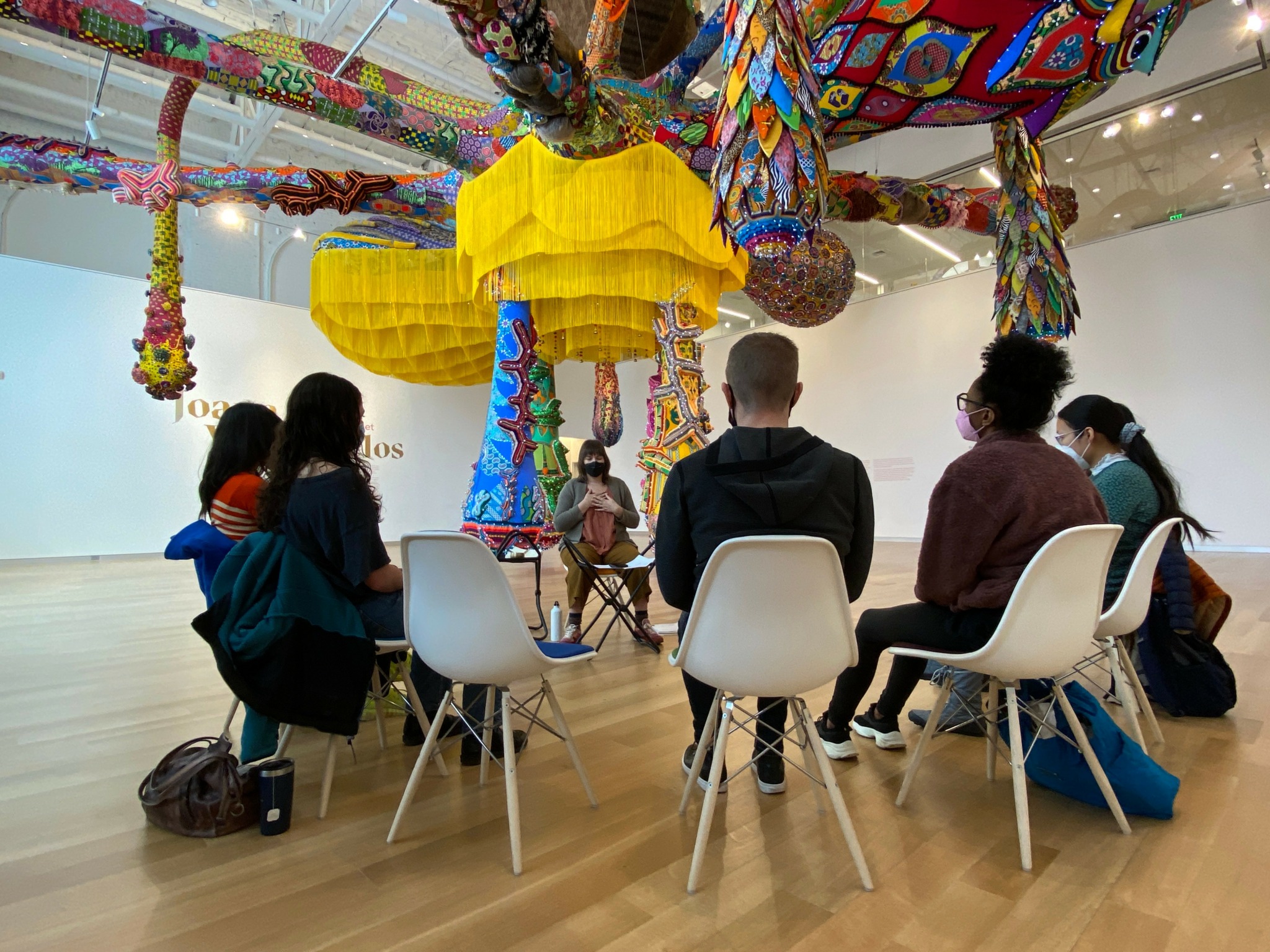
We often hear about learning lessons – but just as important is unlearning lessons. Have you ever had to unlearn a lesson?
Social media is not a healthy place for me and my business—that’s a lesson I had to unlearn. This was tricky because, at its best, social media can be a beautiful tool for connection. I started using Instagram for personal use way back in the day before it was bought by Facebook, and it was a great place for artists to make real connections. Then I used it for business and marketing and had strange times trying to be myself and sell programs. I felt really drained by it, but was also addicted. Addiction to Internet, technology, social media and smartphones is one of the very painful addiction epidemics of our time. But also more people are beginning to wake up and use it more mindfully, just as fewer people smoke and drink now than before. So I think we’ll eventually get straight with IT and social media, too. Internet and Technology Addicts Anonymous (ITAA) has been a really helpful resource for me personally. And in business I reached a moment of sink or swim a few years ago when I decided to do an experiment. I told myself, if this business wants to live, let’s see if it lives without doing anything to market. So for that period of time I stopped working on my business and focused on working in it—on my clients and on authentic, in-person relationships and networking. It worked! I kept getting individual and institutional clients by word of mouth and by reaching out to people directly in old-school ways. The business wanted to live. So now we do use social media just a little bit here and there to keep in touch, but we’re focused more on collaborative opportunities to tell our story to cultivated audiences.
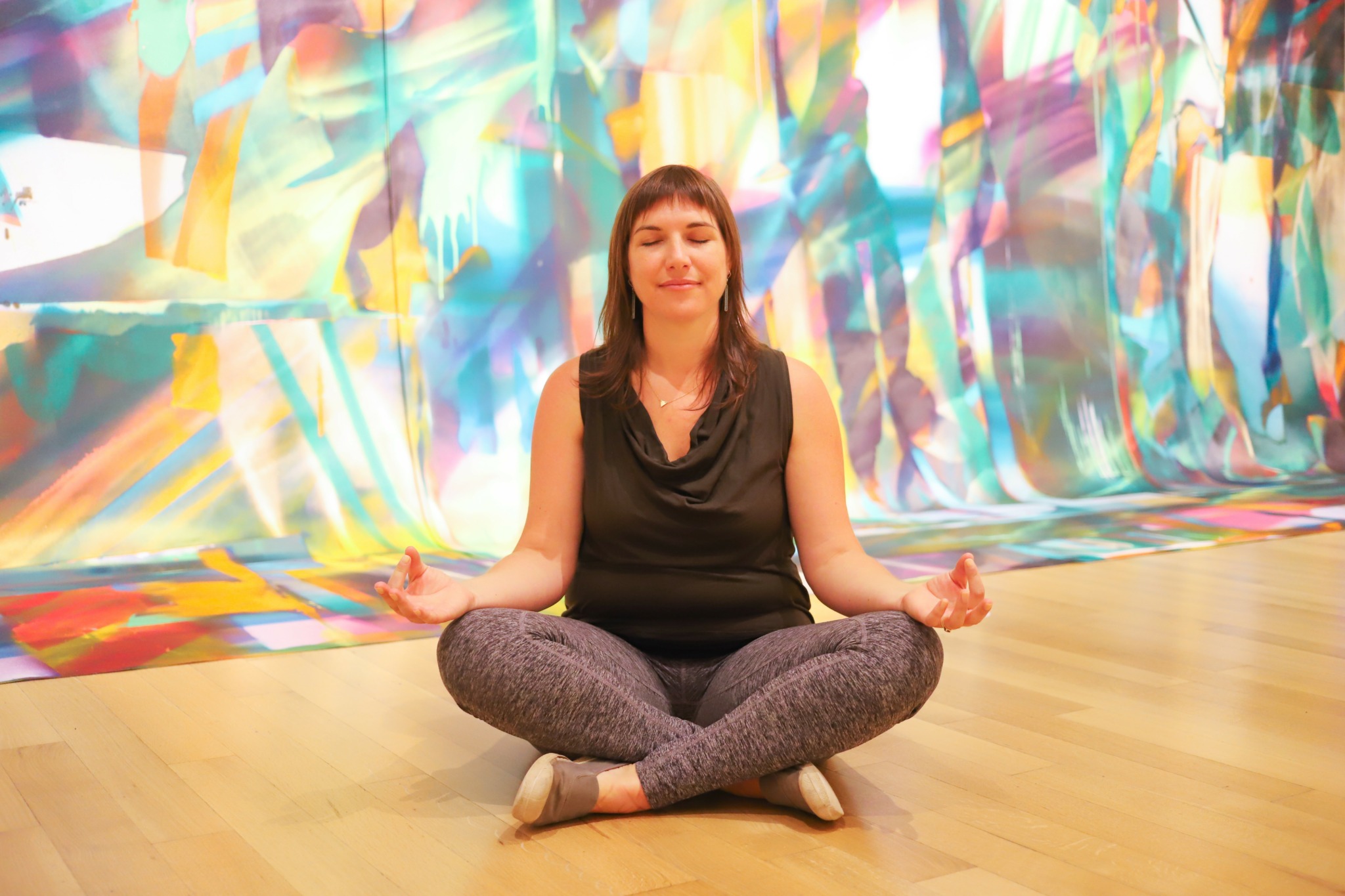
How’d you build such a strong reputation within your market?
I think being warm, fun, and down to earth helped me build trust and real connections, while credentials, testimonials, and reputable partners like museums and universities helped with credibility. In the end it’s all about how you make people feel, so, hopefully, my focus on presence and care has become my reputation.
One of the questions I like to live by is, who do you want to be near? I make career decisions this way and it has always served me well. At one point I was considering professional development opportunities and was about to either sign with a recommended book coach who felt mildly creepy to me, or accept an invitation to join a 2-year training with Tara Brach and Jack Kornfield, who I trusted so much. I wanted to be near them. So that’s what I chose, and it changed my life and work for the better. The mindfulness lineages Tara and Jack invited me into are based in so much compassion and integrity, they amplify the good in us. And that inspires me to keep offering that goodness forward to other creatives through art-based mindfulness.
Contact Info:
- Website: https://wayfinderinstitute.com
- Instagram: @wayfinderinstitute
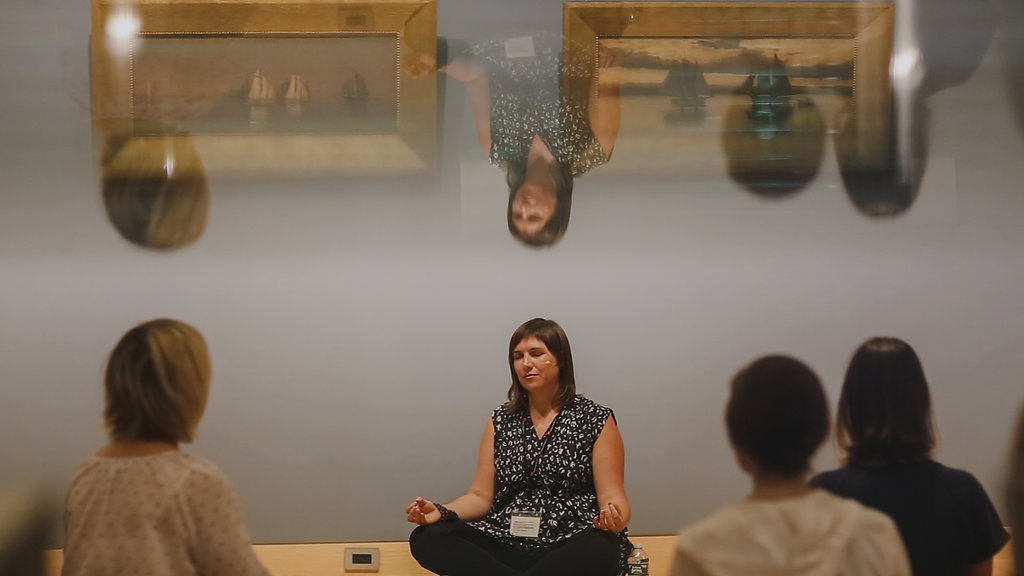
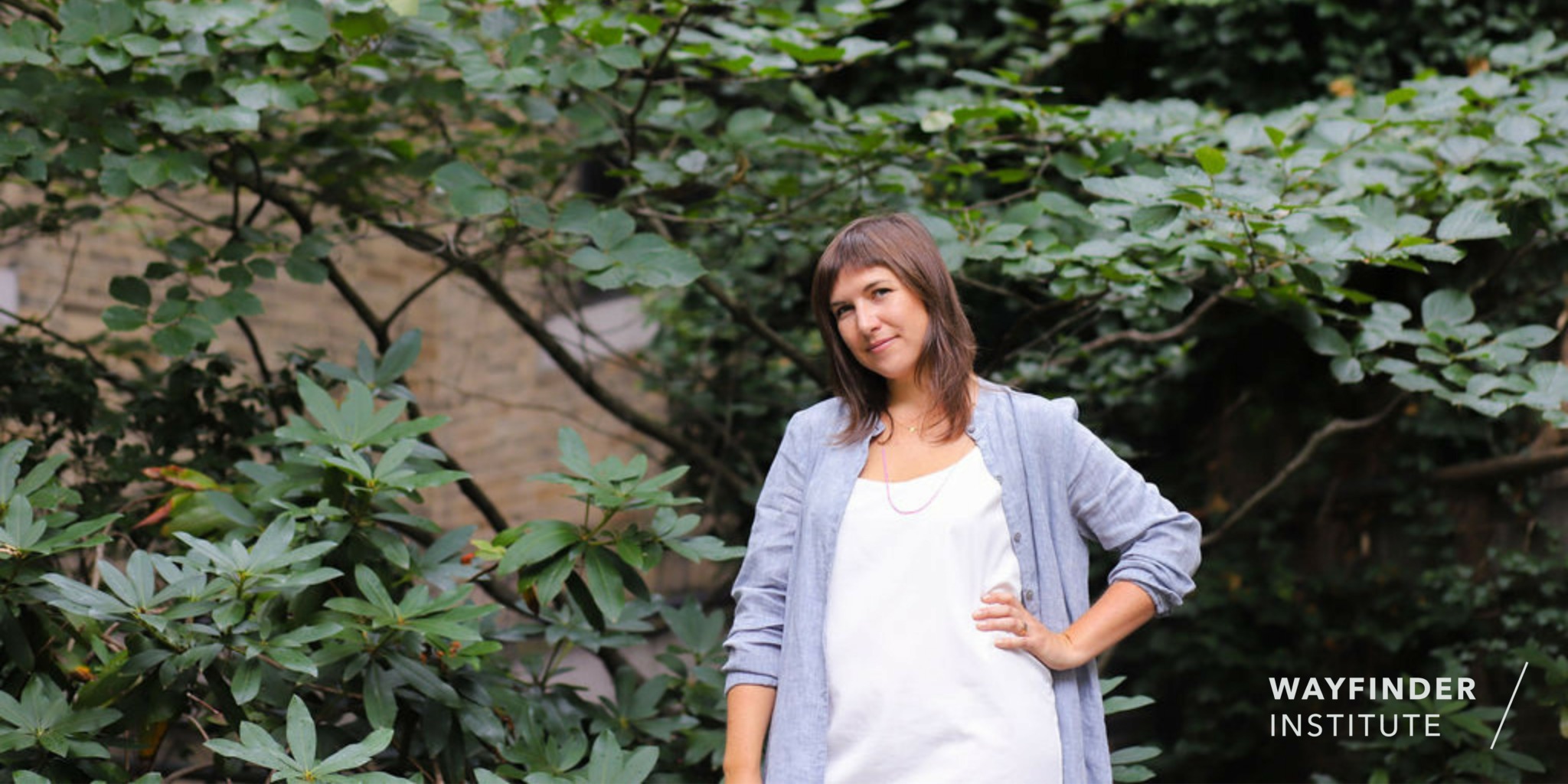

Image Credits
Smith College Museum of Art, MassArt Art Museum, Carlie Febo, Mel Taing,


